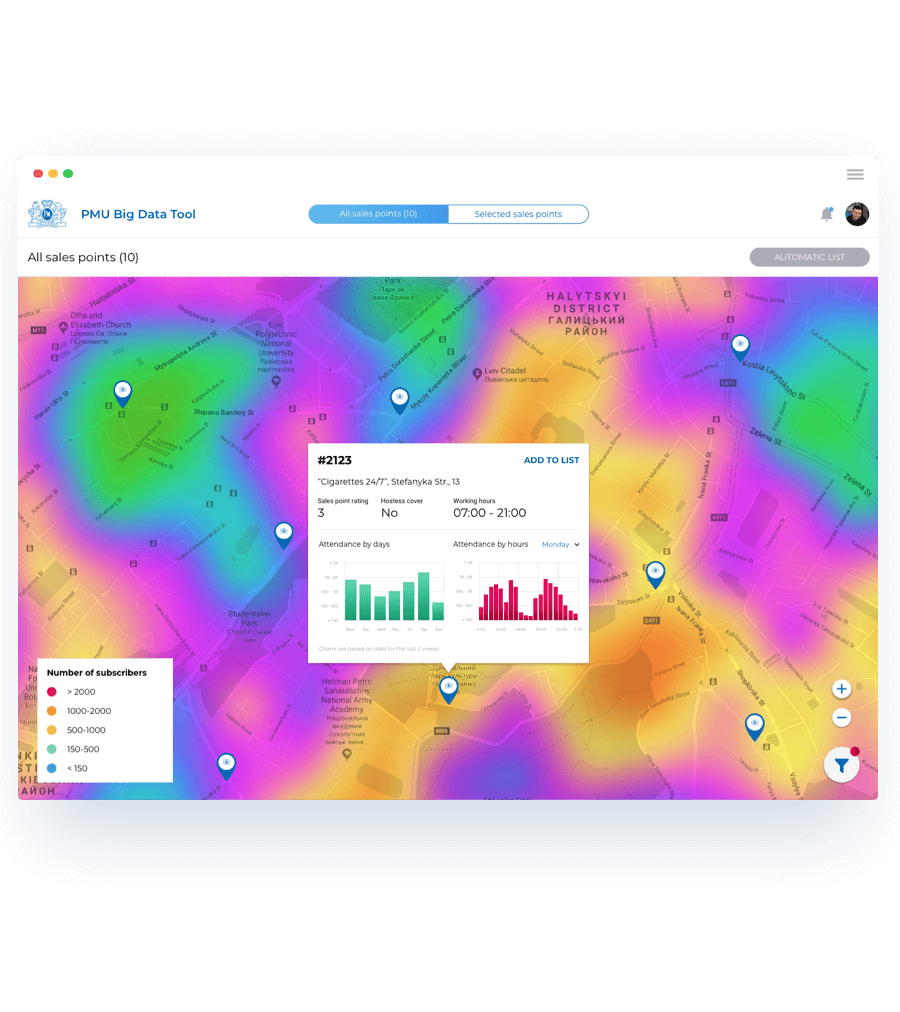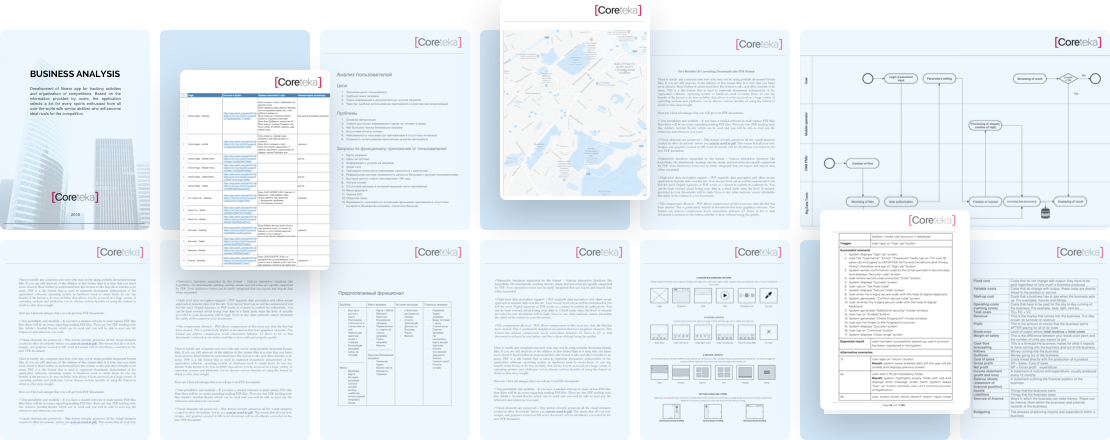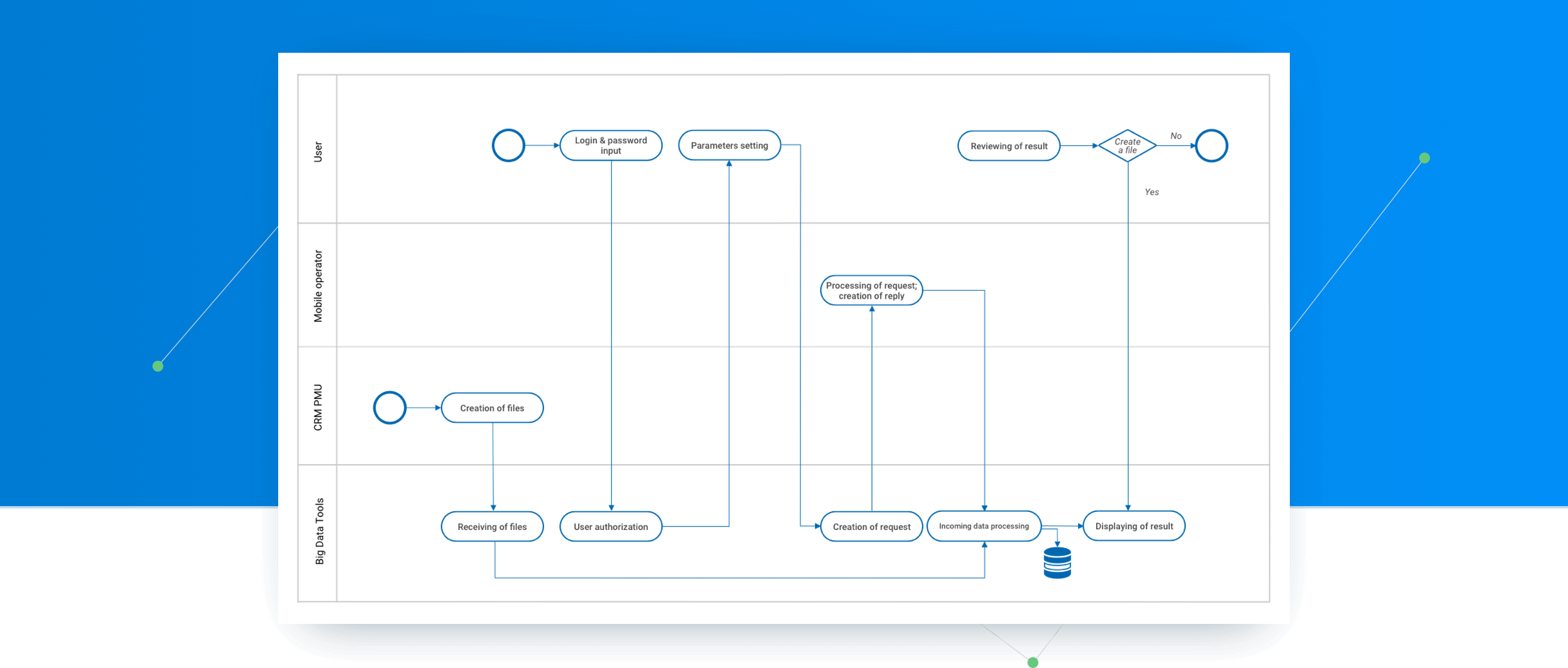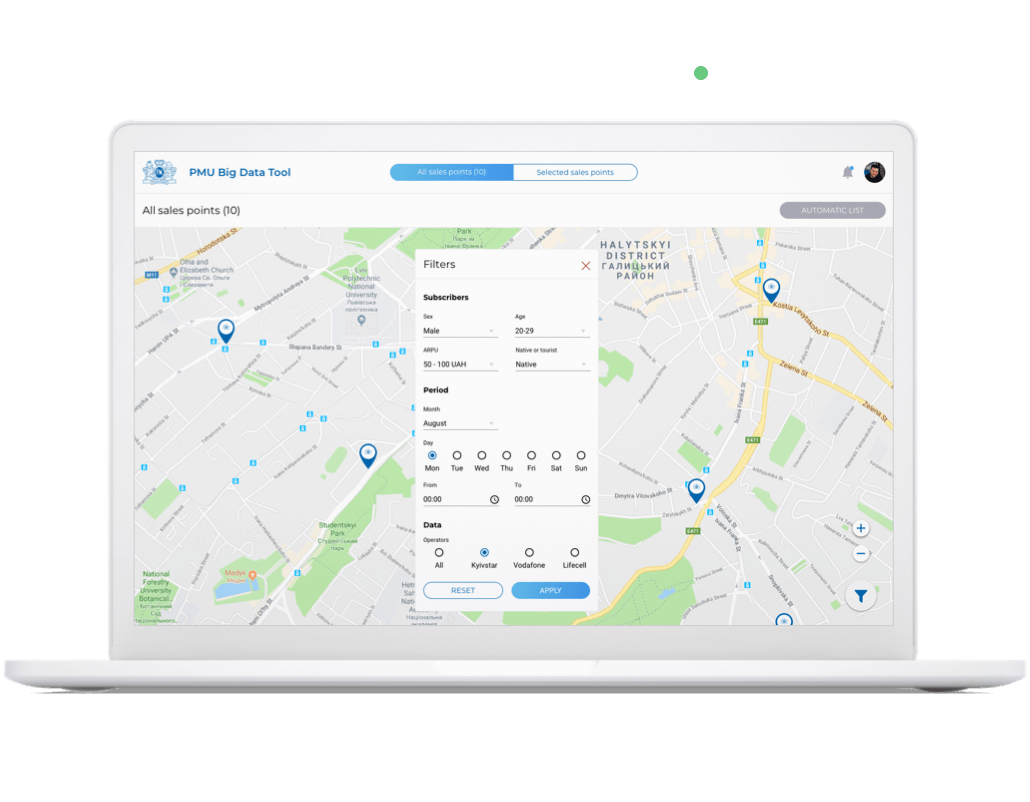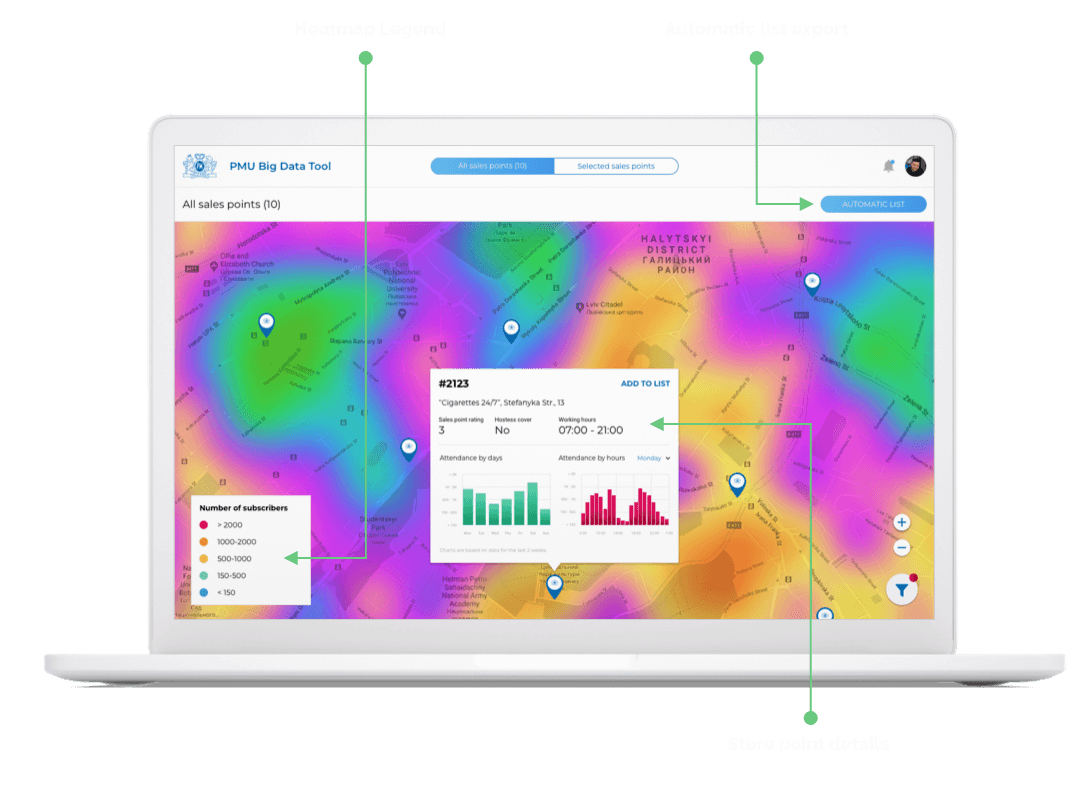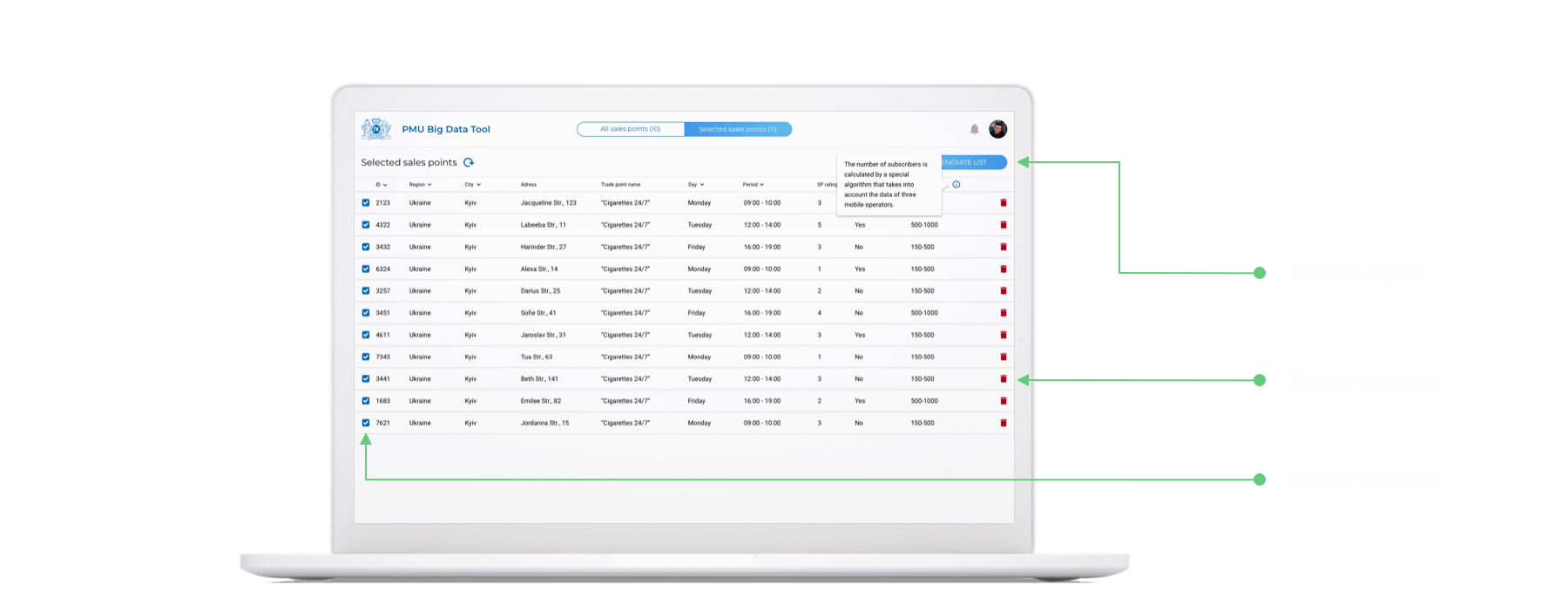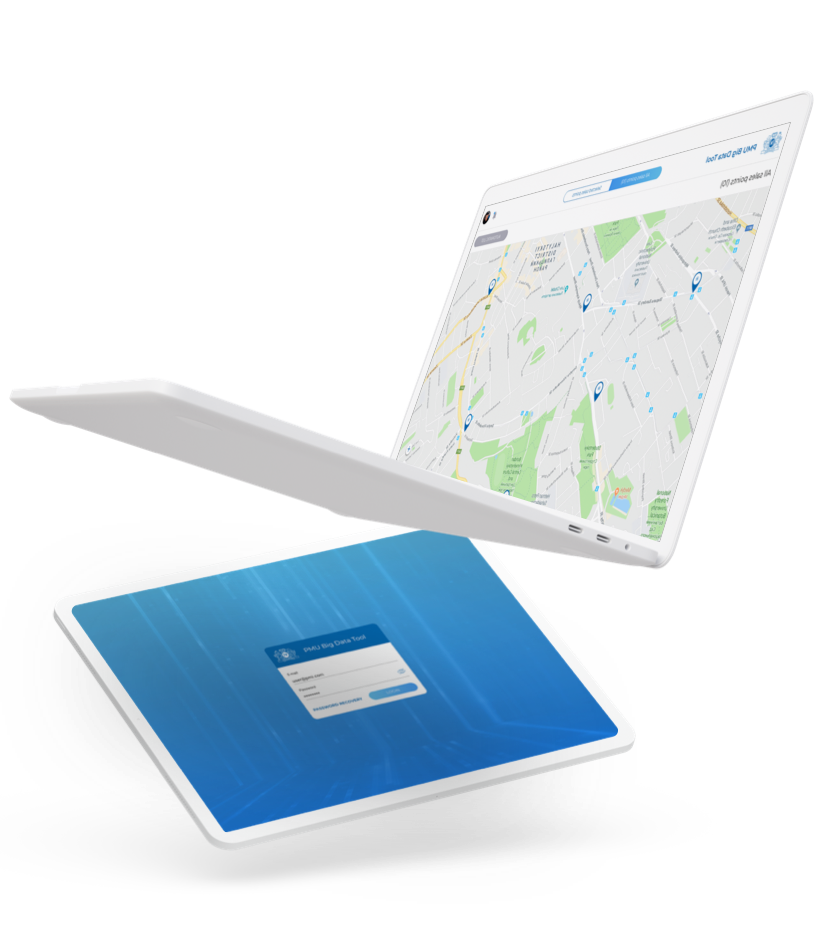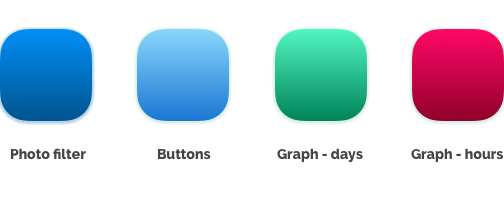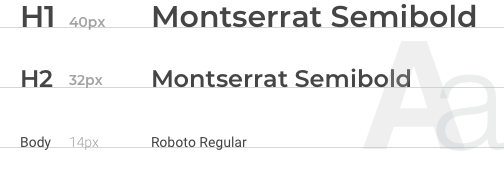Big Data Tools are frequently used by enterprises to improve consumer demand forecasting. They allow you to get valuable insights into customer behavior, preferences, and market trends.
For example, Coreteka developed its Big Data Tool for a retailer that wanted to predict the most frequented time in its outlets, allowing the marketing department effectively plan its campaigns. To make it possible, the Coreteka team has leveraged different information sources like weather, social, and cellular networks.
In general, Big Data Tools can analyze vast amounts of data from various sources, e.g., social media, online transactions, and customer reviews. This makes it possible to identify patterns and trends in consumer behavior. The analysis can help businesses understand what products and services customers are interested in, what factors influence their purchasing decisions, and how their preferences change over time.
By combining these insights with traditional forecasting methods, businesses can improve their accuracy in predicting consumer demand. For example, retailers can use Big Data Tools to analyze sales data, foot traffic, and social media activity to forecast demand for specific products and adjust their inventory levels accordingly. Similarly, logistics companies can use Big Data to predict demand for their services and optimize their operations accordingly.
Together with Machine Learning technology, Big Data Tools can be great solutions for real-time suggestions implementation. For example, an eCommerce website can use Big Data Tools to track a customer’s browsing history, search queries, and past purchases in real time. Based on this data, it’s possible to make personalized product recommendations, suggest complementary products, or offer promotions and discounts to the customer.
